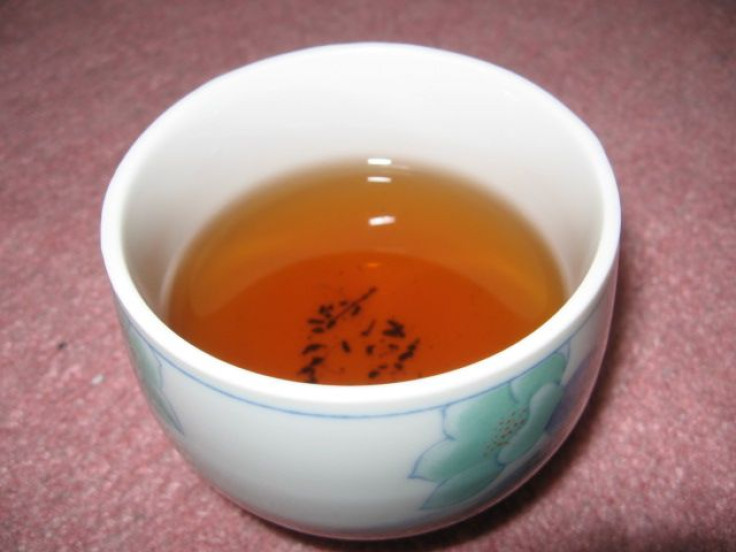Too Much Tea: Overdose Leads to Skeletal Fluorosis, Rare Bone Disease

Tea overdose- you can definitely have too much of a good thing. After drinking an extremely concentrated pitcher of tea made from over 100 tea bags every day for 17 years, a 47-year-old Detroit woman developed a rare bone disease called skeletal fluorosis.
Tea contains trace amounts of fluoride, a mineral that is added to toothpastes and water supplies because small amounts help prevent tooth decay. Consuming too much fluoride, however, can lead to skeletal fluorosis, a bone condition that causes joint stiffness, bone pain, and brittle teeth.
The woman from Detroit went to see Dr. Sudhaker D. Rao, a bone and endocrinology specialist at the Henry Ford Hospital, after experiencing bone pain for five years in her lower back, arms, legs, and hips. In addition, all her teeth had been extracted because they became so brittle.
X-rays showed calcifications throughout the patient's arm ligaments and abnormally dense bones along her spine. The doctors who referred the patient to Rao initially suspected that she had cancer, but since Rao had seen skeletal fluorosis cases in his native India, "I was able to recognize it immediately," he told Livescience.
Fluoride levels in her blood turned out to be four times higher than a normal concentration- a clear confirmation of skeletal fluorosis.
The Environmental Protection Agency's maximum contaminant level for fluoride is only 4 mg per liter. The patient admitted that every day for the past 17 years, she had been drinking a pitcher of tea made from 100 to 150 tea bags- more than 20 mg of fluoride per day, a clear overdose.
Dr. Rao published the case study today in the New England Journal of Medicine, along with his colleague Dr. Naveen Kakumanu.
Extra fluoride is normally filtered out of the body by the kidneys and excreted, but fluoride crystal deposits can form on bones if a person consumes large amounts of it over time.
The fluoride deposits can gradually change bone structure, hardening ligaments and impairing movement. The condition is rare in Europe and North America, but very common in regions throughout Asia with naturally high fluoride levels in drinking water.
Skeletal fluorosis caused by tea overdose is not unprecedented in the United States.
In 2011, Emory University researchers published a case study of a 48-year-old Georgia woman who developed the bone disease after drinking one to two gallons of orange pekoe tea every day for 30 years. In 2005, researchers at the Washington University in St. Louis diagnosed it in a 52-year-old woman who drank one to two gallons of double-strength instant tea daily since she was 12 years old.
Rao told Livescience that skeletal fluorosis can heal if the patient cuts off all fluoride intake. The fluoride deposits gradually dissolve as the bone repairs itself in the body's natural remodeling process, though it can take years to fully eliminate the excess fluoride.
Indeed, the Detroit patient saw gradual improvement of her bone pain after she stopped drinking tea. Rao and Kakumanu state in their case study that if her bones do not heal quickly enough, they may boost the remodeling process with the drug teriparatide, which is typically used to treat osteoporosis.
The bottom line: Enjoy your tea in moderation, because a long-term tea overdose can lead to bone disease from fluoride buildup.



























